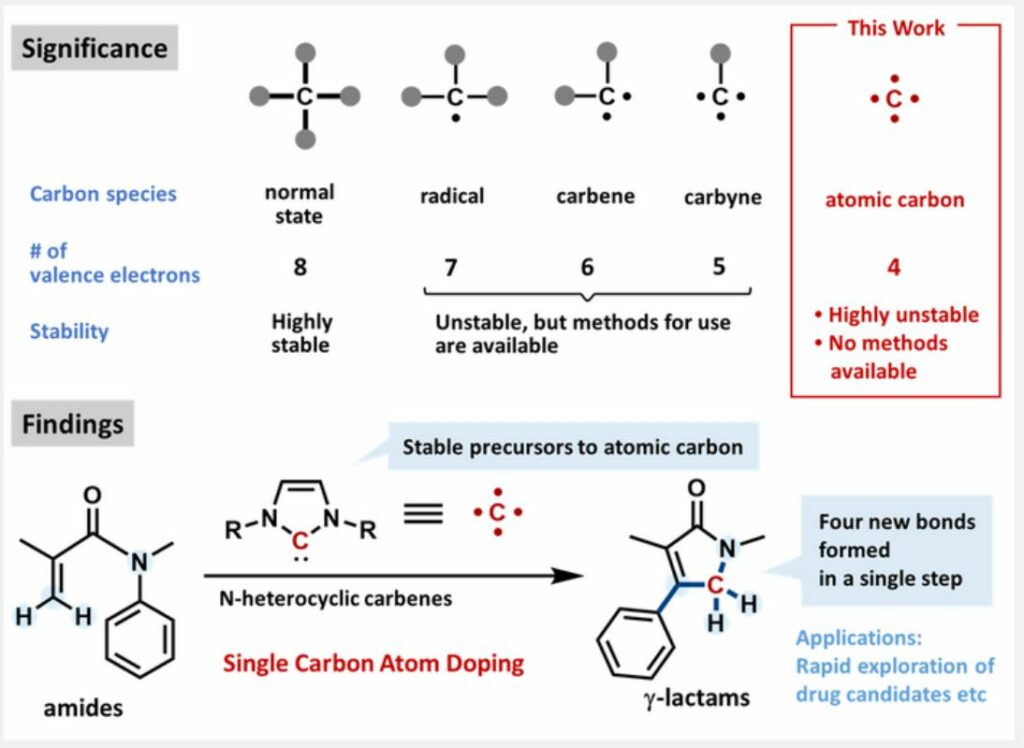In order to accelerate the first stage of drug development and reduce the cost of generic manufacture, pharmaceutical synthesis has to be simplified. Researchers from Osaka University have now identified a chemical reaction that, due to its usefulness and simplicity, has the potential to revolutionize drug production, according to a paper that was just published in Science.
Most pharmaceuticals have a few tens of atoms and about the same number of chemical bonds between those atoms. As a result, creating complex drug structures from basic precursors using organic chemistry methods often needs meticulous planning and time-consuming, gradual processes.
Forming as many chemical bonds as you can in one step is the gold standard in drug synthesis. Theoretically, one carbon atom may be added to a drug precursor by creating four bonds in a single process. Regrettably, atomic carbon is often too unstable to be used in most chemical reactions. This was the issue the researchers were trying to solve.
“Because atomic carbon is too unstable for use in organic synthesis, reagents such as dihalocarbenes are basically all that’s available as atomic carbon equivalents,” as explained by lead author Miharu Kamitani. “We have expanded the toolkit for such reactions and have applied our technique to an established pharmaceutical.”

The discovery made by researchers at Osaka University is based on molecules called N-heterocyclic carbenes. These compounds have an analogous carbon atom stabilized by the chemical mechanism of resonance. By doing a simple reaction with alpha, beta-unsaturated amides, a key molecule in the progression of cancer, different gamma-lactams, which are cyclic molecules that are often found in antibiotics, were made in one step, with a yield of more than 60% in most cases.
Notable is a one-step chemical modification of aminoglutethimide, a medication used to treat seizures and other diseases, with a 96% yield. So, even very complicated drugs can be changed for drug targeting and activity studies, as well as for a wide range of other procedures that are usually very difficult to do because of how complex they are to make.
“Pharmaceutical companies are always on the lookout for straightforward reactions that achieve complex chemical transformations,” adds senior author Mamoru Tobisu. “We envision that our single carbon atom doping reaction will be broadly useful in this context.”
With this work, it was possible to use an atomic carbon equivalent to make four chemical bonds in one step, create chemical architectures that can be used in medicine, and completely change the chemical nature of an existing drug molecule.
The method developed by Osaka University researchers will be helpful for rapidly producing potential pharmaceuticals, which will speed up both the development of new drugs and the manufacturing of ones that are already on the market—especially if the method is expanded to additional classes of transformations in organic chemistry.
Source: 10.1126/science.ade5110
Image Credit: Getty
